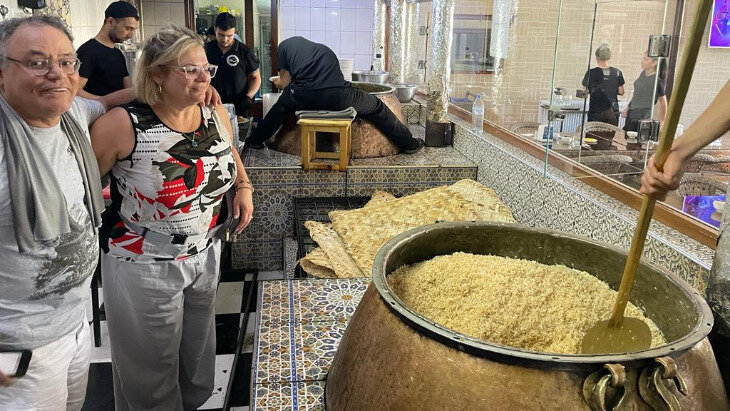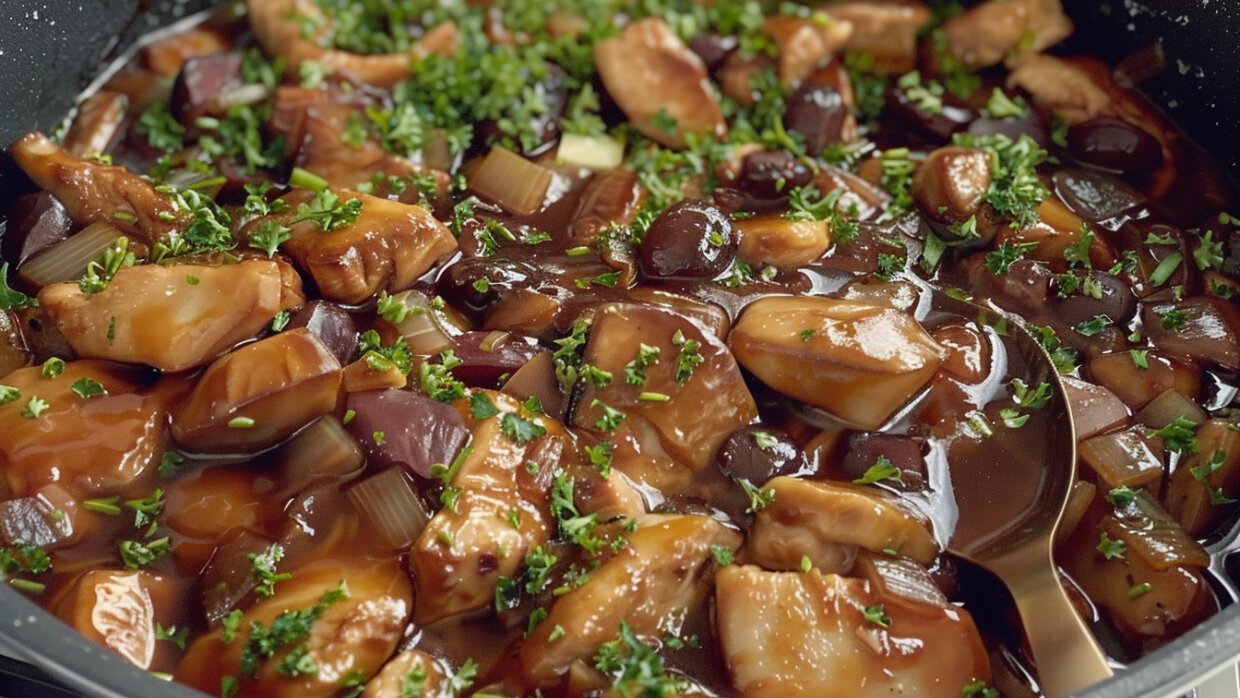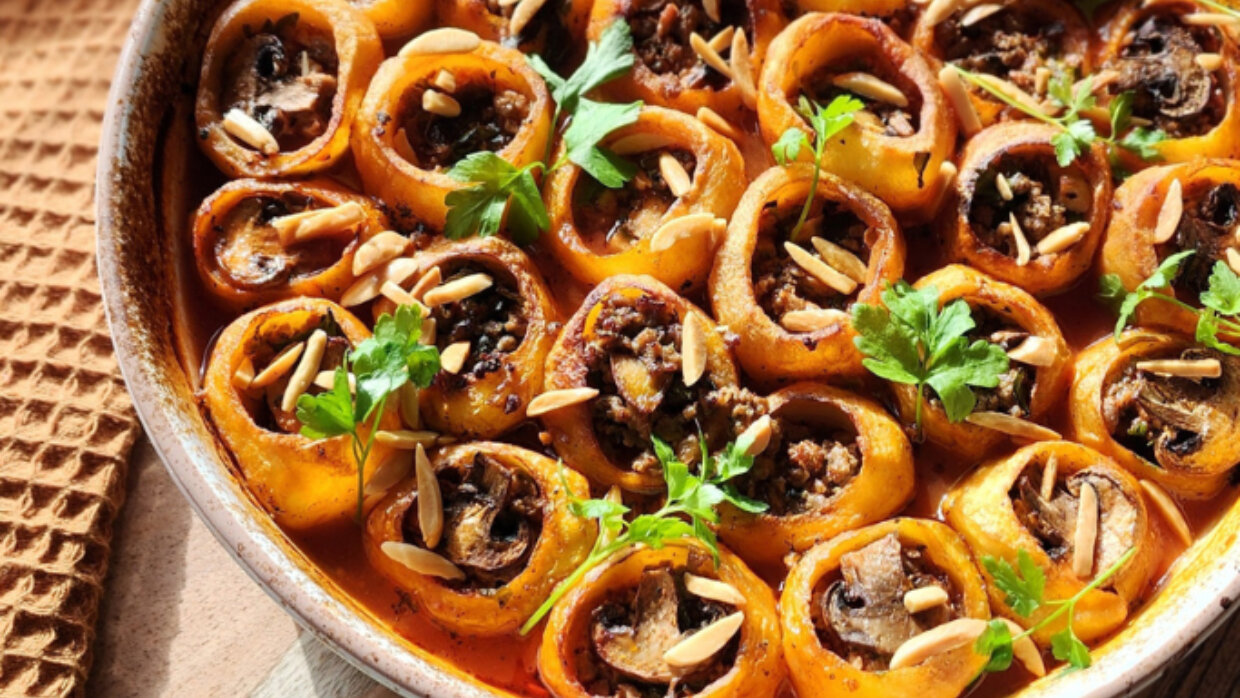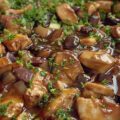Elbow to elbow, we cozily tuck into tables crammed together, adorned with several heaping plates piled high with steaming rice and melt-in-your mouth meat. Up to five generations of family and friends gather eagerly, communally enjoying the intoxicating aroma of slow roasted plov.
Eating plov is more than a meal. It’s an entire experience.
Plov, “pilafs” Central Asian ancestor, is a meaty rice dish that originated in Uzbekistan. It is slow cooked for hours in a special heavy cast iron pot called a kazan. Plov is full of meaty flavor (traditionally lamb, but it is often made with beef as well) onions, carrots, chickpeas— all of these simmer together during the lengthy process, combined with a delicious blend of warm savory spices, including cumin and coriander.
Uzbeks take plov pretty seriously. There are dozens of varieties, from Bukhara to Samarkand. Plov recipes differ dramatically. Some include elements like dried fruit—an addition that feels quite foreign to the plov I know and love.
Plov is unique because of how and when it is cooked- and by whom.
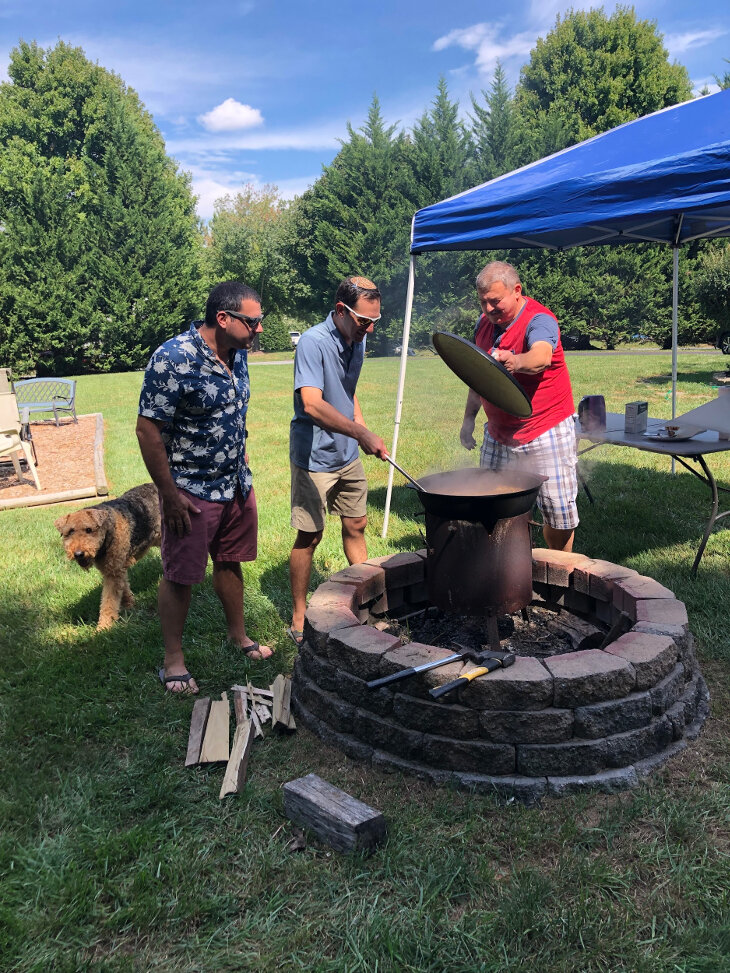
It’s customary for only the men of the family to cook the dish. I have years of memories of my grandfather and father bending over the kazan, carefully folding the elements together with a long slotted oversized spoon called the shumovka. From father to son, the recipe is passed on and perfected. My father has started to teach my very-not-Russian husband the tricks of the plov trade and my plov loving appetite is thrilled that the tradition lives on.
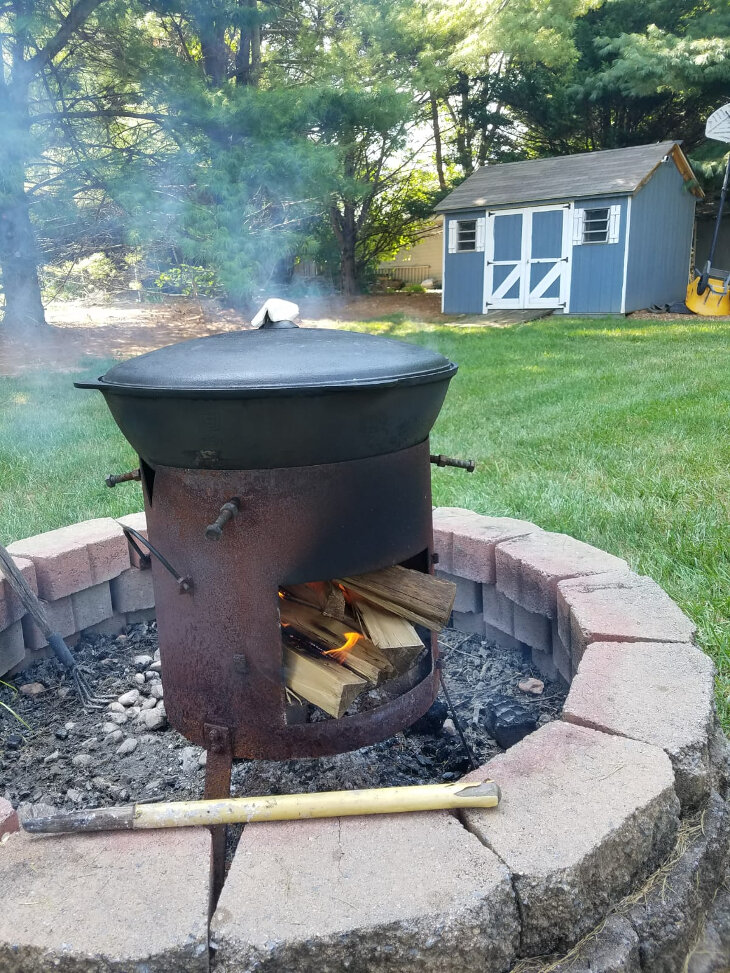
And while there are many variations of plov, our family recipe is true to the capital city of Tashkent, where my family settled for three (and a half) generations. My father’s side of the family resettled as war refugees in Uzbekistan during the 1940s. Often people assume that we are Bukharian, as Bukharian Jews have lived in Uzbekistan for hundreds of years. My family, however, was among the number of Ashkenazi Jews fleeing Hitler’s hatred. They came from Moldova and were ensconced in the Soviet Union until the fall of that short-lived regime.
At that point we were on the move again, as refugees to the United States. A lot was left behind, but the plov recipe flew across the ocean with us.
Rebuilding a new life in a new country is tough. Forging forward in a foreign land, with a foreign language and foreign customs is not a challenge for the faint of heart. But my family, and the Jewish people in general, are not faint of heart.
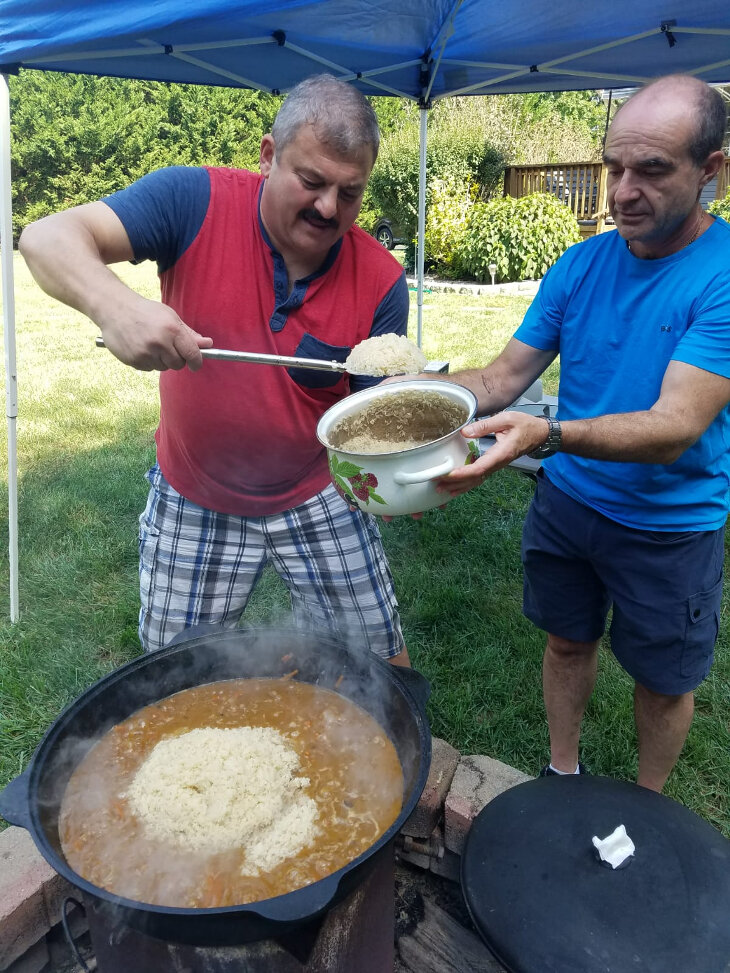
For thousands of years, as Jews have been forced from place to place, we have had to leave with next to nothing. We leave the horrors behind, we take the best bits forward with us, and we create new lives. And often the best bits include the cuisine of our old homes.
I grew up with plov-centric family reunions highlighting the joyous occasions of life. Birthdays, holidays, anniversaries equal a kazan full of plov in my mind. Young and old, everyone loves this Uzbek dish.
In some ways, life in Uzbekistan under Soviet rule was easier to tolerate than in other areas shrouded by the Iron Curtain. The hospitality of the Muslim culture of Uzbekistan coexisted well with the hospitality and love of family and community known among Jews. Plov was, and is, a symbol of this hospitality.
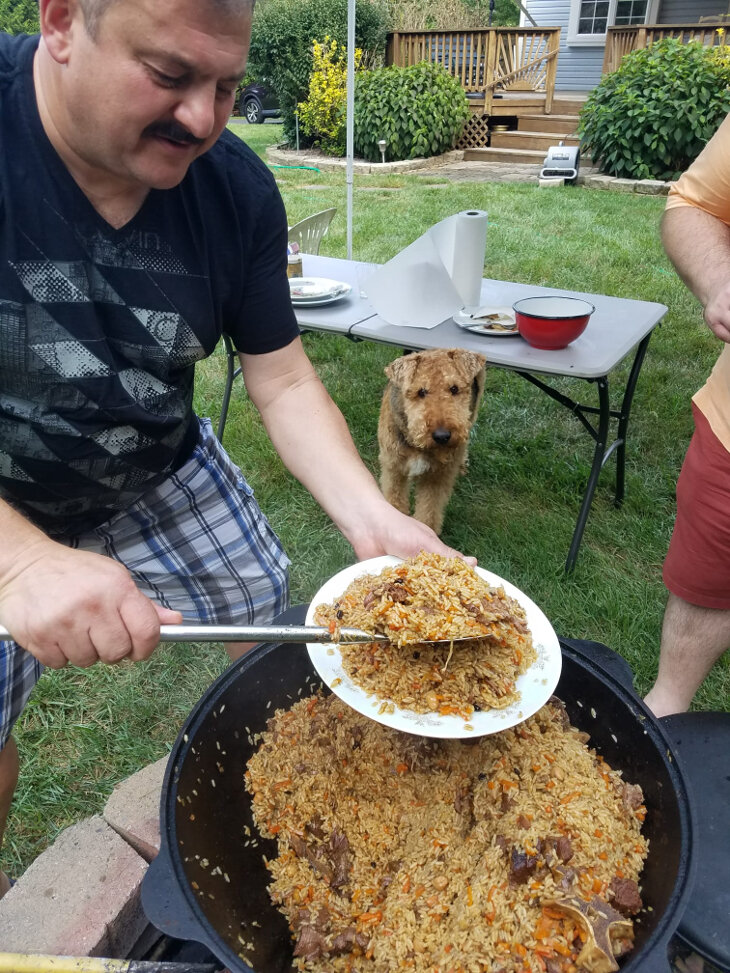
Prepping an enormous quantity of plov to share among the community was a special part of every celebration. My family likes to retell the tale of my parents' wedding plov, made for the groom's party to celebrate the occasion. Customarily, as a mark of respect and honor, the groom's father scoops a large handful and hand feeds the bride's father the celebratory first bite. Sort of like the Western custom of the bride and groom feeding each other wedding cake, but meatier and messier.
My maternal grandfather, a Jew from the Siberia-esque Ural Mountains did not know this Uzbek tradition until he was the unwitting hand-fed recipient of an enormous mouthful of fresh plov. He liked to joke that he was being hazed by plov choking at this joyous occasion, but the sentiment stands— hospitality comes first!
If you’re tempted to try your hand at making plov (I highly recommend it!) make sure you invite family and friends to enjoy this dish with you! The taste is exquisite, but the warmth of those you love crowding together for a plateful is priceless.
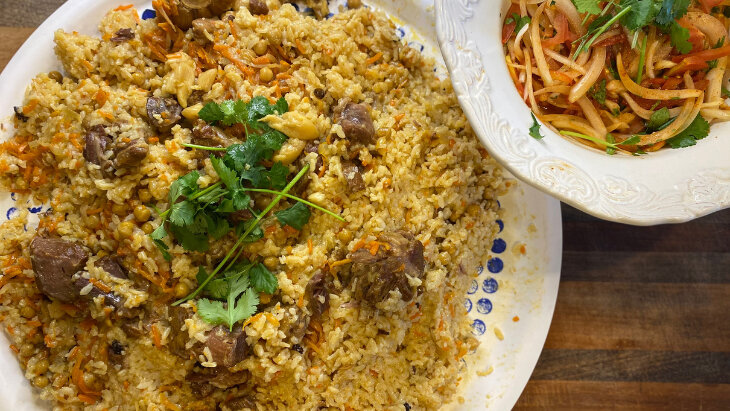
Get my recipe for Uzbek Plov and the simple Uzbek Salad you must serve on the side.


